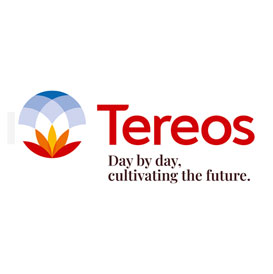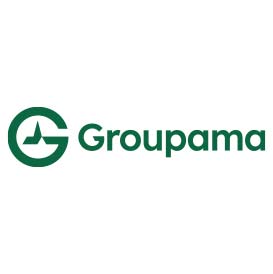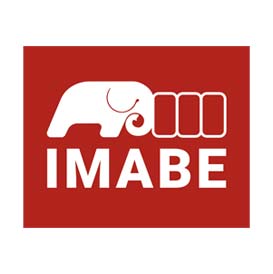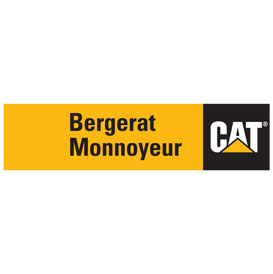Sponsoring
The organizers of the 2025 World Alfalfa Congress wish to express their heartfelt thanks to the many sponsors of this world congress !
registration
Early Birds | Standard | |
| Full Registration (1) | 825 € | 990 € |
| Accompanying personn (2) | 450 € | |
(1): Full Registration fee includes : Workshop on monday, Welcome cocktail, congress from Tuesday to Wednesday, Gala diner on Tuesday and Field Tour on Thursday
(2) The Accompanying Person registration fee includes welcome cocktail on Monday, Gala Diner on Tuesday, and Field tour on Thursday
If you need an invitation letter (for visa purposes) for you or your accompanying person, please contact us by email
Call for papers
Submit your abstract / Call for contributions

Christian Huyghe
Chairman of the WAC25 Scientific Committee
The World Alfalfa Conference 2025 will gather scientists and practitioners from all over the world.
Many researchers and experts will share their experience and design the future. The recent international summits evidenced the very quick climte change, the loss of plant, animal and microbial biodiversity and increasing risks related to water, from extreme droughts to extreme floodings.
All these events show that the planetary boundaries are overpassed and put a threat on our ability to ensure a safe and affordable food to all, now and for the future generations.
Alfalfa is characterized by its biological properties and especially the biological nitrogen fixation, its ability to produce large quantity of biomass and protein under a wide range of soil and climate conditions, its suitability to feed high-yielding ruminants, its ability to restore soil and water quality and biodiversity. So, alfalfa, alfalfa-based cropping systens and alfalfa-based animal production systems appear as exciting options to build an economically viable agriculture that would at the same time take us back into the planetary boundaries.
This conference will thus address various boundaries that are relevant to alfalfa-based production systems and the overall economic viability for farmers and markets. It will give space for discussion between researchers and practitioners. Moreover, a special attention will be given to Young Researchers and Investigators, ie. the next generation. Welcome to Reims!
Christian HUYGHE, President of the Scientific Committee
Submit your abstracts in one of the 6 themes and select simultaneously the associated discipline.
A special event will be organized to highlight young researchers and investigators. If your career began less than 10 years ago, please also select this criterion when submitting your abstract.
Speakers


Alfalfa Cropping to Promote and Benefit from Biodiversity
The loss of biodiversity on agricultural land is due to long-term intensive management of monoculture agroecosystems with limited crop rotation. Plant, animal (especially insect) and microbial biodiversity have been greatly reduced. The corresponding reduction in functional response mechanisms to environmental and climate shifts decrease resilience of ecosystems. Urgent and radical solutions are therefore needed to halt the loss of biodiversity and restore it to levels that will enable the sustainability of agroecosystems, both locally and globally.
This session will explore how alfalfa can be a driver of biodiversity, including genetic diversity, fostering agroecosystems that support both agricultural productivity and environmental sustainability. We seek proposals that address:
- Enhancing biodiversity and agroecosystem resilience through innovative alfalfa cropping practices in crop and livestock production systems, including crop rotation, grass-alfalfa mixtures, alfalfa breeding.
- Ecosystem services provided by biodiversity (e.g., pollination, pest control, soil health) that can improve alfalfa yields and sustainability.
Disciplinary fields such as ecology, agronomy, genetics, microbiology, and interdisciplinary studies are essential to address this session. Participants will explore innovations in alfalfa management, in relation public policies.
Speakers


Climate change is having a significant impact on alfalfa production around the world, affecting yields, quality, water use, and the growing regions suitable for cultivation. Climate change poses both challenges and opportunities for alfalfa production. While some regions may benefit from longer growing seasons or increased CO2, others face declining yields due to drought, heat stress, and new diseases or pest infestations. Adaptation strategies, including breeding for resilience, will be key to sustaining alfalfa production in the face of climate variability. This session will discuss avenues to develop alfalfa cultivars in conjunction with management systems that enable continued productivity in the face of changing climate.
Speakers


The potential of alfalfa to contribute to planetary boundaries is only meaningful if its cultivation or integration into crop rotations remains economically sustainable, particularly for the producer. This session will delve deeper than the traditional insights into the markets and economy surrounding alfalfa. Evaluating the economic models for alfalfa production prompts a review of cost-benefit analysis of alfalfa cultivation and especially the incentives or compensation for producers for the positive environmental impacts of their work, on top of market retribution. The session will seek to understand the challenges or opportunities for farmers transitioning to alfalfa cultivation. The upcoming session will also assess alfalfa market competitiveness relatively to other plant proteins or crops, and examine the influence of public policies and regulatory environments. Additionally, the session aims to foster international collaboration by addressing global opportunities for research partnerships and the geopolitical dynamics influenced by alfalfa production and trade. This session is therefore entirely appropriate to share experiences, design new paths and why not influence public policies.
Speakers


We have overpassed the planetary boundary for land systems change — human destroying natural ecosystems, especially forests and grasslands, changing them into cropland, road, and others. The biggest issues are loss of biodiversity, reduction of carbon sequestration and environmental pollution due to the conversion of natural forests or grasslands to croplands, especially high-input annual croplands. Alfalfa, as a perennial, deep root, high yield forage, can reduce the cropland share needed to feed livestock and especially annual crops directly consumable by humans. Moreover, alfalfa grassland might be a solution to regenerate the diversified cultivation systems or restore degraded grasslands.
How can we use the limited existing arable land efficiently to meet the demand for meat and milk production?
This session will discuss innovative approaches to integrate alfalfa into cropland or grasslands systems to increase productivity and land use efficiency with environmental benefits, aiming to reduce and stop forests and grasslands destruction to remain in the planetary boundaries.
- Evaluating the various services supplied, such as carbon storage, biodiversity, food production…, from innovative alfalfa cropping systems compared to annual crop systems, natural grassland and other planting systems
- How to redesign food systems with alfalfa to meet the food demand of human but not increase the pressure on natural ecosystems
- Alfalfa, a successful tool to restore degraded grasslands by improving productivity and environmental benefits.
Welcome participants from any disciplines including agronomy, ecology, grassland management, animal nutrition, economics and markets to join the actions that could bring us back into the safe operating space.
Speakers


Alfalfa, as a nitrogen-fixing legume, is a cornerstone of sustainable agriculture, naturally enriching soil nitrogen and reducing the need for synthetic fertilizers. Beyond its agronomic role, alfalfa contributes significantly to more nitrogen-autonomous production systems by supporting diversified cropping and livestock systems. However, its intensification must consider planetary boundaries, especially regarding nitrogen and phosphorus cycles. This session will delve into sustainable management practices that maximize Alfalfa’s nitrogen fixation potential while minimizing nutrient losses and environmental impacts. Disciplines such as agronomy, soil microbiology, ecology, environmental chemistry, and animal nutrition are essential to understanding nitrogen-use efficiency, nutrient recycling and soil health. Participants will explore innovative strategies that integrate alfalfa into production systems to enhance resilience, promote circular nutrient use, and align agricultural practices with ecological sustainability.
Speakers


Alfalfa, like most field crops, relies mainly on water, which is essential for its growth and production. When rainwater is insufficient, irrigation has been used for centuries, and today alfalfa is irrigated in many parts of the world. In these regions as well as in rainfed conditions, adjusting crop management - including water availability - is of the utmost importance in order to improve our ability to close the carbon, nitrogen, water and energy cycles, and thus manage the planetary limits linked to these cycles. In coordination with other sessions, and in particular the “climate change” session, we will discuss the various aspects linked to water use in alfalfa production: physiology, morphology, varieties, as well as the use of cultivation techniques and irrigation. Like the other sessions of this congress, this one will be an opportunity for practitioners and researchers to share experiences and knowledge, and why not, to come up with ideas for public policy.
Program
Organizers

Dr. Xinshi Lu
Member of Organizing Committee
Dr. Xinshi Lu is a professor in grassland ecology, genetic resources and alfalfa breeding. He is the President of National Grassland Industry Innovation Alliance of China and the Honorary President of China Grassland Industry Association. Dr. Lu was the Chairman of Organizing Committee for the 1st WAC and the member of Organizing Committee for the 2nd and 3rd WACs.

Dr. Baoming Ji
Member of Organizing Committee
Dr. Baoming Ji is a professor and vice dean in the School of Grassland Science, Beijing Forestry University. His research focuses on grassland resources and ecology. He currently serves as the General Secretary of National Grassland Industry Innovation Alliance of China. Dr. Ji co-organized the 3rd WAC-China.

Dr. Tiemei Wang
Member of Scientific Committee
Dr. Tiemei Wang is a professor in the School of Grassland Science, Beijing Forestry University. She is an expert in alfalfa resources and breeding. She currently serves as the Vice General Secretary of China Grassland Industry Association. Dr. Wang co-organized the 3rd WAC-China and the Chinese delegation to each previous WAC.
Yann Martinet
General Secretary of the IOC
Yann has a PhD in chemistry and has been Director of Luzerne de France since 2021. Previously, he was head of industrial processes for the dehydrated alfalfa sector at Luzerne de France.

Daniel H. Putnam

Eric Masset
Member of the CIDE
Eric is a farmer and has been President of the Luzerne de France union since the end of 2015 until the end of 2024. He is elected treasurer of CIDE, the European dehydrators' union.

Daniel Horacio Basigalup
Agronomist and MSc and PhD in Plant Breeding
Between 1980 and 2022, worked as alfalfa breeder at the National Institute of Agricultural Technology (INTA), Argentina. In 1996-2021 coordinated the INTA’s national alfalfa breeding program, having released 11 commercial cultivars.

Luis Machin
Luis Machin has been Director of the Spanish Association of the Grass and Alfalfa Dehydration Sector since 2018. He has also been CIDE's Director of Operations since 2021.

Sebastian Proske
Sebastian Proske has been Director of the German Association of the Grass and Alfalfa dehydration sector since 2018. He is also a member of the Forum for More Sustainable Protein Feed organized by the German Ministry of Agriculture.

Eiko Jan Duursena
President of CIDE
Eiko Jan Duursema started in the dehy industry as plant manager (1987). Since 1996 president of de VNG (national dehy association of The Netherlands) Since June 2004 President CIDE.

Beth Nelson
President of the National Alfalfa & Forage Alliance
Beth is President of the National Alfalfa & Forage Alliance, headquartered in St. Paul, Minnesota. She was one an organizer of the 2022 World Alfalfa Congress held in San Diego, California.

Livia Caprara
General Secretary of AIFE
Livia Caprara is General Secretary of AIFE, the Italian Association of Dried Fodder Producers. A professional translator and PCO, she has gained a vast knowledge and contacts in the sector thanks to her long collaboration with AIFE.

Bernadette Julier
Research Director, INRAE, France
Bernadette Julier is a research director at INRAE, Unité de Recherche Pluridisciplinaire Prairies et Plantes Fourragères (URP3F), in Lusignan, France. Since her doctorate, she has been working on the genetics of legumes, mainly alfalfa.

Dejan Sokolovic
Principal research fellow, Institute for forage crops
Dejan Sokolović is Principal Research Fellow in Institute for forage crops Serbia in genetics and breeding of perennial forage plants and investigation in production and quality of forage, persistency and resistance to drought. Characterization and evaluation perennial forage species populations for including of resistant and productive autochthonous genotypes in pre-breeding.

Ariel Odorizzi
Professor, Researcher, INTA, Argentina
More than 21 years of experience on the alfalfa crop as a researcher at INTA (National Institute for Agricultural Technology), Argentina and as a research assistant at the Department of Genetics and Soil-Plant relation in the Universidad Nacional de Río Cuarto, Argentina.

Claude Tabel
Member of the Supervbisory Board, RAGT group, France
Claude Tabel is a member of the Supervisory Board of the RAGT group. This group, based in Rodez France, specializes in agricultural supplies and more particularly in seeds where it exercises all the seed activities, breeding, production, marketing on a very large number of species, including forage species and in particular alfalfa.

Nan Liu
Director, Department of Grassland Production and Utilization (CGST)
Doctor in Agricultural from China Agricultural University, and Director for the Department of Grassland Production and Utilization from CGST, and Deputy Secretary-General of Chinese Grassland Society.

Honoré Labanca
Secretary of the WAC25 Scientific Committee
Resarch and develoment projects lead, french alfalfa organization, France Agronomy Engineer from AgroParisTech in 2019 and now accountable of research and development for the french dehydration industry, he worked on alfalfa biorefinery during his studies (fractional harvesting process of alfalfa and the use of a leaf-rich product in animal feed).

Imane Thamialami
Head of Scientific Division, National Institute for Agricultural Research
Dr. Imane Thami Alami is Head of Scientific Division at the National Institute for Agricultural Research (INRA) in Morocco. With over 30 years of experience as an agricultural engineer and senior researcher, she specializes in nitrogen fixation of legumes, biofertilizer production, and silage microbiology.

Stephane Jezequel
Scientific Director, Arvalis, France
Stéphane Jézéquel is the scientific director of ARVALIS, an applied research institute dedicated to arable crops which provides references, innovations, supports and advice to farmers and agricultural sectors in France.

Jaume Lloveras
Professor, Researcher, INIA, IRTA, Spain
Jaume Lloveras is Agricultural Engineer (Universitat Politecnica de Valencia. Spain ) and Ph.D. in Agronomy (Iowa State University. USA). He was researcher at INIA (Spanish Institute of Agricultural Research), at IRTA (Institute of Agrifood Research and Technology), and Professor of Agronomy at the School of Agrifood and Forestry Engineering of the University of Lleida (Spain).

Alberto Palmonari
Associate professor at the Department of Veterinary Medicine (DIMEVET)
Associate professor at the Department of Veterinary Medicine (DIMEVET), University of Bologna, since 2021. Involved in in several research projects, particularly about chemical characterization of feedstuff for animal nutrition. As a PhD student and researcher, main activities were focused on the identification of specific traits in alfalfa responsible for its quality.

Charlie Brummer
Professor, Director of the Plant Breeding Center, UC Davis, California
Charlie Brummer is the Director of the Plant Breeding Center and a Professor in the Department of Plant Sciences at the University of California, Davis. His research focuses on crop improvement of alfalfa and a number of other crops, using breeding, genetics, and genomics and exploring genetic diversity in germplasm collections.

Matthieu Brun
Scientific Director, FARM Foundation, France
Matthieu BRUN, Scientific Director of the FARM Foundation (Fondation pour l'agriculture et la ruralité dans le monde). Matthieu Brun has a doctorate in political science and is a research associate at the ‘Les Afriques dans le monde’ laboratory at Sciences Po Bordeaux.

Christian Huyghe
Chairman of the WAC25 Scientific Committee
Doctor in Plant genetics from the University of Rennes and Director of Research in "Plant Genetics and Improvement" at INRA, now INRAE, Christian Huyghe conducted research programs on the genetic improvement of the seed yield of a protein crop, the lupin, on the genetic improvement of the digestibility and seed production of alfalfa and on the analysis of the genetic changes in temporary grasslands and the underlying mechanisms.
Grégoire de Gallye d’Hybouville
Head of Communications
Grégoire is Head of Communications at Luzerne de France and himself an alfalfa farmer. He is in charge of all the logistical aspects of organising the 4th congress.
Prepare your arrival
Book your hotel
Corner group , our partner has made a selection of different hotels located less than 15 minutes on foot around the Congress Center, at negotiated prices. Don't wait more to book!

Organizers

About us
CIDE is the European organization of national federations of dehydrated fodder, representing 6 national associations and a total of 160 dehydration industries. Our sector is constantly evolving, and we offer 9,000 jobs in our different countries.
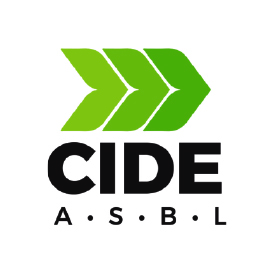
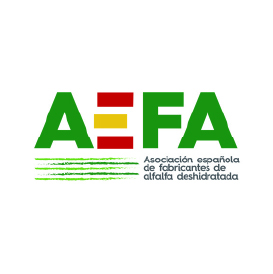
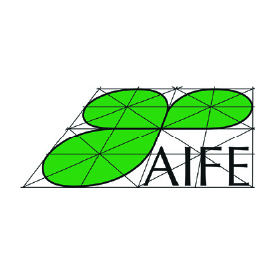

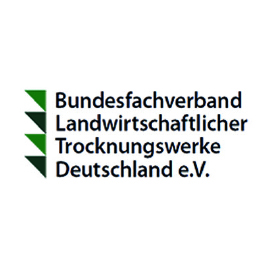
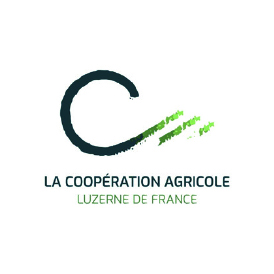

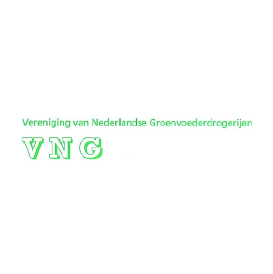

Discover Reims
Practical
information
Centre des congrès
- 12 Bd du Général Leclerc - 51100 Reims
- Phone : + 33 (0)3 26 77 44 44
